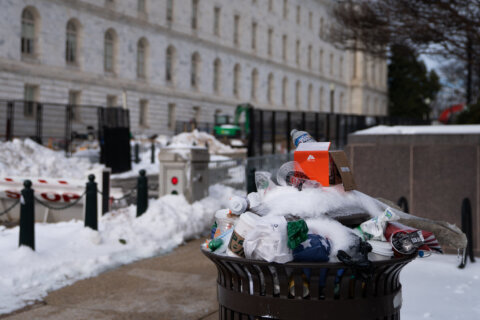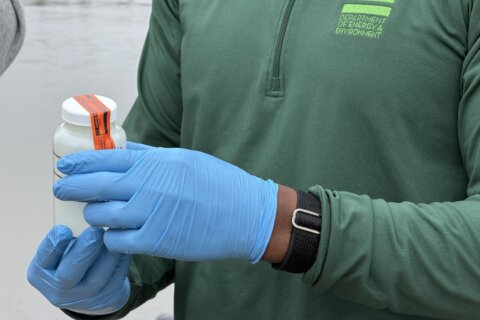The last heat wave to scorch the D.C. region is barely a memory and already the next one is coming back. And if you’re paying attention to what scientists have to say about climate change, then you’re bracing for more and more of these withering hot days of heat and humidity.
While there’s lots of research that looks at how heat impacts the body in the short term, that’s not the case when it comes to studying the longer term impacts — but that research is starting to accumulate.
The sweating, nausea, weakness and cramps related to heat are bad enough. But what scientists found when studying people who work outside in weather like this on a regular basis is also concerning.
“When you are exposed to very intense heat, it leads to what’s called ‘acute kidney injuries.’ And under normal circumstances, you basically recover from that relatively quickly,” said Dr. Amir Sapkota, chair of the School of Public Health at the University of Maryland.
“When you have this repeated exposure to extreme heat, then we don’t recover from those acute kidney injuries as well and it leads to what is called ‘chronic kidney disease.’ That chronic kidney disease, over years, progresses on to end-stage kidney disease. And that’s where you have your kidney failure and you have to undergo dialysis,” he added.
Again, this is only based on research that looked at people who work outside, “but it’s pretty safe to say that if it is happening on outdoor workers, the same thing can happen to the general population when they are exposed to very high levels of heat and repeated exposure to this extreme heat,” Sapkota added.
Sapkota said the increasing frequency of heat waves, as well as the increasing intensity and duration, is something we need to adapt to. It means you’ll need to start drinking lots of water throughout the day to stay hydrated and shift your exercise routines to the morning when the air is a bit cooler.
In addition, he said these weather events make it easier for wildfires to start, pointing to the fires in Canada last year that sent a dark orange smoke spewing into our region’s air. While that isn’t good for anyone, it’s especially harmful to asthmatics and others with respiratory issues.
“Climate change is here and it’s making people sick now,” he said. “So this extreme heat event that we are seeing — we know that this is going to get worse in the years ahead.”
Get breaking news and daily headlines delivered to your email inbox by signing up here.
© 2024 WTOP. All Rights Reserved. This website is not intended for users located within the European Economic Area.








